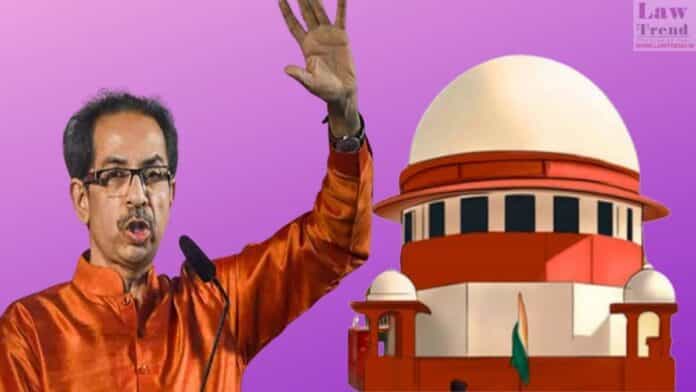The Supreme Court on Wednesday advised the Uddhav Thackeray-led Shiv Sena (UBT) to prioritise the upcoming Maharashtra local body elections, deferring an urgent hearing on its plea challenging the allocation of the party’s iconic ‘bow and arrow’ symbol to the rival Eknath Shinde faction.
A bench comprising Justices Surya Kant and N Kotiswar Singh told senior advocate Kapil Sibal, who appeared on behalf of the Thackeray faction, that due to time constraints, the court would be able to hear the matter only after the summer vacation, unless a compelling case for urgency was made before a vacation bench.
Sibal contended that the Maharashtra Assembly Speaker’s 2023 decision to assign the ‘bow and arrow’ symbol to the Shinde faction based on legislative majority was contrary to the Constitution Bench’s earlier ruling. He argued that the symbol—historically associated with Shiv Sena—would significantly impact voter perception, especially in rural Maharashtra where the upcoming local body polls are due.
Justice Surya Kant, however, questioned the relevance of party symbols in such elections. “Since when are local body polls contested on party symbols?” he asked. In response, Sibal emphasized that in Maharashtra, symbols do carry weight in local elections.
“You let the elections be held. We have been told that local body elections have not been conducted in Maharashtra for more than five years. You concentrate on polls, and we will see what can be done,” the bench remarked.
Sibal attributed the delay in the elections to the Supreme Court’s earlier order in 2022 that had maintained status quo amid political uncertainty. In response, Justice Kant suggested that, if necessary, the court might impose conditional restrictions on symbol usage, as was done in the Nationalist Congress Party (NCP) dispute during recent Lok Sabha and Assembly elections.
The court’s observations come just two days after it cleared the way for the much-delayed local body elections in Maharashtra, stalled since 2018 due to a legal tussle over OBC reservations. The State Election Commission has been directed to notify the elections within four weeks.
Shiv Sena (UBT) has also challenged the Assembly Speaker’s January 10, 2024 decision rejecting its plea to disqualify 16 MLAs aligned with Eknath Shinde. The Thackeray camp claimed the ruling was “unlawful and perverse” and accused the Speaker of legitimising defection by declaring the majority faction as the “real Shiv Sena.”
The Speaker’s refusal to disqualify any legislator cemented Shinde’s status as Chief Minister following his 2022 rebellion against Thackeray. It also strengthened the ruling coalition of the BJP, NCP (Ajit Pawar faction), and Shiv Sena (Shinde group) ahead of the 2024 Lok Sabha and upcoming assembly elections.
In the recently concluded 2024 general elections, the Shinde-led Sena secured seven Lok Sabha seats, while the BJP won 132 and the NCP (Ajit Pawar group) claimed 41 seats in the assembly. In a political shake-up in December 2024, Devendra Fadnavis returned as Chief Minister, with Shinde and Pawar sworn in as his deputies.
The Supreme Court’s message to Shiv Sena (UBT) is clear: prepare for the polls first—the legal battle over the party symbol can wait.




